PERFORMANCE: The Actors' Roundtable: "The Guru Problem"
 Paden Fallis |
Paden Fallis |  December 13, 2012
December 13, 2012
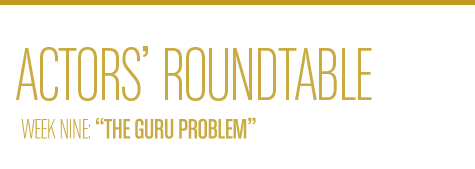 |
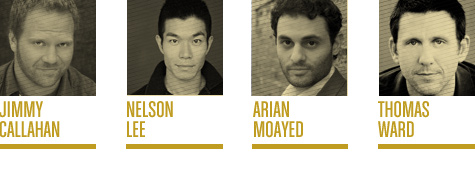 |
|
For 12 weeks, Paden Fallis posed one question each week to a group of professional working actors from a variety of backgrounds in an effort to dig a bit deeper into their artistic working processes. In this second series, an expanded group of actors explores where their art fits into the larger cultural context. ACTORS’ ROUNDTABLE: THE GURU PROBLEMDo we have a guru problem in our line of work? Oftentimes actors hold to their methods and training with a vice grip, unwilling to deviate. They will define themselves by the school they went to or the teacher they trained with. They’ll stay with the same acting teacher for years on end, tethering themselves to one individual. They look for guidance in the ways of Scientology and Kabbalah. Is this problematic? Are too many in our line of work in danger of losing their individuality? Let me have it. - Paden Fallis, Performing Arts Contributing Editor |
|
|
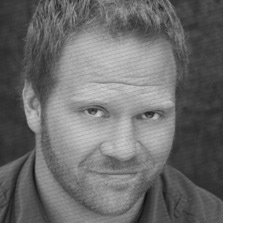
JIMMY CALLAHANObviously, it’s hard to speak in absolutes unless presented with some statistical data, so I just want to be clear that this is solely based upon my own observations. Yes. Yes, there is a problem with actors/artists getting too attached to one method or one way of thinking. Specifically, looking at the world of comedy and improv, it seems like this is a common occurrence. Starting off in Chicago, I was enveloped in a world of improvisation. The Second City & iO (Formerly known as Improv Olympic) were the two main entities, and while there was intermingling, there was a definite vibe and following for each school of thought; each philosophy. Some people would go through one of the programs and then spend every waking moment at that theatre, trying to absorb as much as they could. A rivalry of sorts existed (and exists) between SC and iO, even though both offer different yet equally valuable training. The same thing is present between UCB [Upright Citizens Brigade] and The PIT [Peoples Improv Theatre] in NYC, and The Groudlings & UCB in LA. Having gone through both the SC & iO programs, as well as Comedy Sportz, I can say that I learned a great deal from each of them, but also was turned off by elements of all three. I’m very grateful for my experiences though, because I was able to create my own comedic voice based on my interpretation of the teachings of a wide array of talent. Too often, I see actors glued to one school of improv, or worse, one form. It is especially jarring in this specific case, because improv is supposed to be free form and completely unique. I cringe when I hear people preaching about one particular method of improv, because I feel like they are missing the broader picture. In my mind, you’re supposed to learn as many different points of view as possible, and then create your own vision. It doesn’t matter if you’re talking about comedy, stage, or film acting—opinions abound. The job of the actor is to learn about different methods and then create one that suits himself. |
|
|
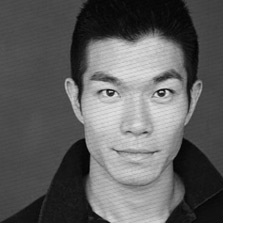
NELSON LEEIn a business that is completely lacking in any discernible model for success, it makes sense that we would want to cling onto something that defines us, our art, or our path. We want to be separated from the masses and not be something as homogenous as simply being “an actor.” We want to trust and believe in a guiding force that will lead us through the dark uncertainty of our career in exchange for a promise that it will all work out. But whether it’s Julliard, Meisner, or Joseph Smith, allowing any fraternity or dogma to completely overtake your personality is a step towards becoming completely lost. I’m not saying it’s impossible to have a healthy relationship with a mentor or institution, just that it quickly becomes unhealthy when we remove ourselves as the ultimate authors in our endeavors and use their names in our place. Now, I truly loved the experience and knowledge I gained during my training at the conservatory in New York. I know what it’s like to think the world of an instructor, to hold them up as the golden rule. I have believed that there was only one way to do a role when there were many. But we live in too complex of a world and strive towards goals too high to believe in only one way. As artists we require a never-ending degree of flexibility to be able to navigate and engage the obstacles presented to us in a genuine way. Gurus and teachings are helpful to us along our paths but can take us only so far. In the end, we’re the ones that have to do all the heavy lifting. Personally, when the dust settles, and I’ve accomplished something that I care about, I’d prefer not to have my thunder stolen from me by “The Secret.” |
|
|
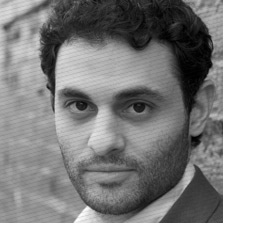
ARIAN MOAYEDI don’t hold one method of training with a vice grip. Honestly, I don’t care what any one person’s method is. If it is good, if it is honest, if it is fearless, it is good. If it isn’t, then dropkick into the river. There is too much emphasis on training in this profession, if you ask me. Some of the best actors I know have no formal training. But their work is extraordinary. When method training is brought up, we inevitably talk about Daniel Day Lewis. Some say he lived in the forest for months to prepare for The Last of the Mohicans. He doesn’t drop character on set and he’s constantly exploring as the person he’s portraying. That is great for him and great for us, because it works. If he did all of that and it was phony, well, I guess we wouldn’t be talking about him. But there are unbelievable actors that don’t do that. They show up. They say their lines. They leave. The Anthony Hopkins, the John C. Reilly’s. Their work is all incredible and believable and exciting and empowering. To me, it doesn’t matter. It doesn’t matter who your teachers are/were. It doesn’t matter if you trained at Juilliard or barely graduated high school. If you’re good, you’re good. If you’re not, it shows. I do believe that to be good (and then eventually, great…which most of us will never achieve), you have to fail a bunch. A lot, actually. Robert Rodriguez says to be a great director, you have to make 18 bad movies. That I believe. |
|
|
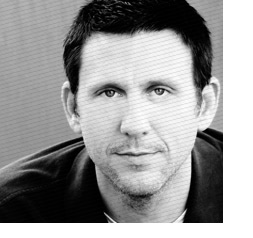
THOMAS WARDI think about this all the time. We have a guru problem as human beings. I have been guilty many times in my training and growth of putting a teacher on a pedestal, I would imagine against their wishes. I’ve also been guilty of feeling that there must be a rulebook that applies to everything all of the time, and I’m becoming more and more comfortable with the fact that this just isn’t so. I have learned the most about the nature and dangers of training through being a teacher. I see myself in student after student. And what I see much of the time is a thirst for approval, plain and simple. An assurance that they’re doing it right, which is nothing more than a need to ease fear. The best teachers I’ve had have forced me into fear and discomfort in a safe and productive manner. Several years ago I was coaching two actors in a scene for an acting class and one of them turned to me and asked, “Is that what you want?” My skin crawled. I was aware in that moment of the fake power I had. I had the power in that moment to make that young actor think that what they were doing was right or wrong. Hogwash. I’ve been lucky to have received little to no direction from my acting teachers, and I fight that urge as a teacher. I wouldn’t trade the training I’ve received for anything because of one word: variety. I was never in a school or program that subscribed to one approach or vocabulary or method. In fact, it was all over the board. Stanislavsky, Meisner, Hagen, Le Coq, Bogart, etc…. I went from a psychologically based approach in undergrad to an external, physical approach in grad school. And with every new approach or vocabulary I found something useful. I found something practical. I also found a lot of nebulous impractical stuff…but what matters is that I TRIED IT ALL. I’ll try anything. I had a classmate who once said about our training, “This isn’t the way I work.” I remember thinking that this was an odd thing to say as a student. I believe that a student should put aside any notion of “how I work” and try the new thing. I’d also like to point out that I’ve never worked with an actor PROFESSIONALLY who was so into their methodology that it impaired the process. I like that. I like that we don’t spend precious time talking about our approach. We do the play. I’m also grateful that due to the eclectic nature of my training, I’m comfortable with whatever the director decides to throw at us in rehearsal. I enjoy reading any and every book on acting. I’ve got a shelf full of them, and I’ll pick the one that best suits the production I’m working on, or the director and company I’m working with. Do we have a guru problem in our line of work? Yeah, probably. But the blame rests at the feet of the students as much as the teachers. |
|
|
ABOUT THE ARTISTS |
|
Jimmy Callahan is an actor/writer/comedian/acting coach living in Brooklyn, NY. Originally from Chicago, he trained at The Second City & iO. He has appeared in over 60 national commercials between CHI, LA, & NYC. Nelson Lee left his native Canada for New York to pursue training at the American Academy of Dramatic Arts. Since then, he has appeared in various television series, including Blade: The Series, Virtuality, Oz, Covert Affairs, Hawaii Five-O, and the Law & Order franchise. Recently, he took to the stage for the world premiere of Zayd Dorn’s play, Outside People, at the Vineyard Theater in New York, and the American Conservatory Theater (A.C.T.) production of Maple and Vine in San Francisco. He currently resides in Los Angeles. Arian Moayed is a Tony-nominated actor, Co-Founder and Artistic Director of Waterwell, and co-director of its drama program at the Professional Performing Arts School. Arian will be directing his first feature film, which he also wrote, in the winter of 2013. Thomas Ward is an actor and playwright based in Minneapolis. He appeared in the Off-Broadway premiere of Craig Wright’s The Unseen at the Cherry Lane Theatre. He has performed regionally with Actors Theatre of Louisville, Alabama Shakespeare Festival, Georgia Shakespeare, WaterTower Theatre (Dallas), and the ZACH Scott Theatre (Austin), among others. He was previously profiled by stated. |
| View all of our Roundtable discussions… |












Reader Comments